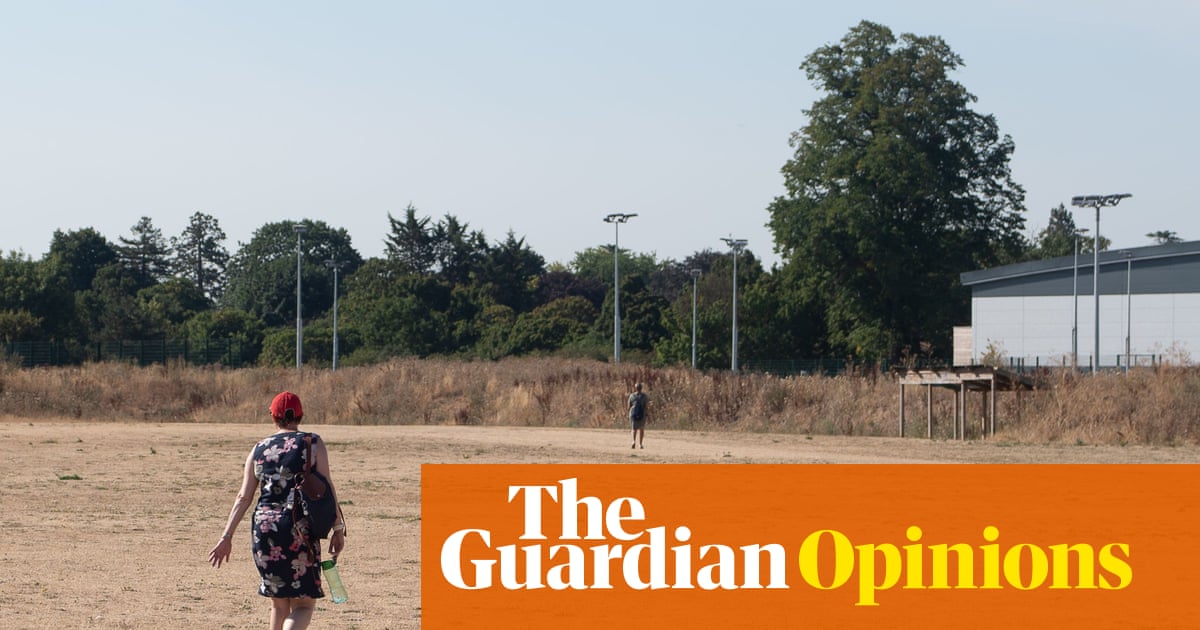Set during the late 1980s, against prevailing Aids paranoia and the Tories’ Section 28 bill forbidding the promotion of homosexuality in education, Anthony Shapland’s taut debut novel about the relationship between two men in the Welsh valleys packs a considerable punch. In an interview, Shapland suggests there was “a generational howl of film and literature about that era when legislation combined with moral attitudes and misconceptions”. Indeed, there are echoes of 80s queer cinema, such as the work of Derek Jarman and My Beautiful Laundrette, in the forbidden liaison between the men, who are known only as B and M throughout. The difference here is that their world is not metropolitan but suffocatingly provincial, a fact that adds considerably to their predicament.
The novel begins on New Year’s Eve 1987, a time when “Don’t Die of Ignorance” HIV information leaflets were being pushed through letterboxes, with their melodramatic images of icebergs and black marble slabs, warning “the virus can be passed from man to man”. At the time, B is living with his father in a cul-de-sac near a “man-made mountain” of coal waste, a “place to be alone with this feeling he’s different to the others”. In the pub, he meets the “good-natured M” from the ironmonger’s, who is 11 years his senior, and with whom he feels an immediate spark.
They agree to meet the following day on the mountain, where they begin an intense and tender love affair, which plays out against the backdrop of a postindustrial landscape, captured in Shapland’s muscular prose: “a brownfield slicked in frost above the river and road, railway and town … The valley is shrinking. Houses fall apart, worthless. A place of industry now sagging, underfed, starved of purpose.” Respected in the community, M has a daughter who lives with her mother and stepfather, and thus has a lot to lose from this risky affair. Before long, he offers B a job and lodgings at the ironmonger’s shop, where the younger man “handles stock, bulky farm deliveries, paint orders”. Soon he can “signwrite, sharpen knives, occasionally turns his hand to shoe repairs … A language of admiration builds between the two men.”
Much of the novel’s tension derives from the duplicitous life B and M are forced to live in the homophobic, close-knit community. The risk of exposure is a constant threat. The titular room above a shop is in reality two rooms, one for each of them, though “nobody comes up here to discover only one bed unmade”. From adolescence, B has learned to pass as straight with other men in the dominant pub-culture: “Men with men, mates. He understands how to behave, what to talk of, how far apart to sit.” To come out in this world would be suicidal. With a litany of slurs, he acknowledges that men like him are seen as “against nature, effeminate, weak. Light in their loafers, shirtlifters, nancies, benders”. He finds he and M are “always lying. Exposed, they would be shamed. Shamed in the town that knows their fathers and their mothers.” It’s a situation that ultimately proves corrosive to their love.
While the novel covers territory familiar from the early work of Alan Hollinghurst and others, it takes stylistic risks with its fragmentary structure, allowing a nimble alternation between the points of view of B and M. In spare sections and single standalone lines, Shapland’s prose achieves a poetic intensity, shifting from vivid evocations of sex to childhood memories. B and M’s fraught but freeing first coupling is full of “spit and awkwardness … This thing is happening. They are both laughing, smiling. Kissing.” Later, Shapland distils the freedom of a 1970s upbringing into a single paragraph:
The summers were full of falls and leaps and forfeits. Of scabs picked at the edges and tarmac-grit grazes, dock-leaf salve on stings, breath held underwater. Of running alongside trains and freewheeling bikes down the steep rutted tracks. Summers of dares and whispers of what men do and what women do, and who has seen what.
With its poignant rendering of a loving relationship undertaken against great odds, compounded by a hostile political climate, A Room Above a Shop is a powerful and luminously pure novel. At 53, Shapland has arrived with his talent fully formed.
after newsletter promotion

 2 months ago
45
2 months ago
45

















































